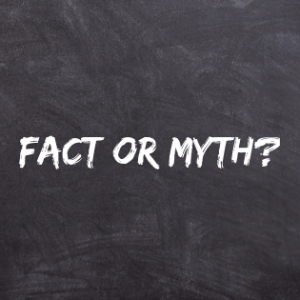-
 by Adv. Dainius Ambrazaitis
by Adv. Dainius Ambrazaitis
on 28 June 2019Myth 1: I have too little information about my Lithuanian ancestry, so it would be impossible to apply.
This is one of the most typical myths commonly spread by the younger generation. Young people are often somewhat embarrassed that they are not fully aware of their ancestral roots – where their ancestors came from, and when. Generally, their knowledge is limited to the information that someone, such as a grandparent or great-grandparent, was from Lithuania.
Typically, they are persuaded that this information is not enough to start the process of reinstating their Lithuanian citizenship – but this is absolutely wrong. The prevailing reaction of clients in such situations who have attended consultations is sincere and pleasant surprise as they start to see how effectively and rapidly, even with such a small amount of information, their Lithuanian ancestral family picture can be restored.
Myth 2: I have no documentation pertaining to my Lithuanian ancestry, so it is not worth even starting the process.
Another grievous misconception is that you should have documents proving that your ancestor was from Lithuania. Be assured that in nine out of 10 cases, my clients do not have such documents. This is completely normal, and definitely not a problem. Knowing that at least one of your parents, grandparents, or great-grandparents was from Lithuania is the only essential condition to successfully initiate the process.
Myth 3: Some sort of cut-off dates are applied to candidates, so I probably will not qualify.
This frequently-encountered belief is determined by a straightforward and unprofessional evaluation of Lithuanian regulations. It is true that the most convenient legal situation is when one’s ancestor arrived in South Africa between 1919 and 1940 (the later the better). However, I can confirm responsibly that in many situations, even without meeting this standard criterion, after individually and thoroughly assessing other circumstances, my clients have been able to apply successfully for the reinstatement of their Lithuanian citizenship.
Myth 4: You would have to renounce your existing citizenship to take up your ancestral citizenship.
The Republic of Lithuania permits dual citizenship in exceptional cases. An ancestral Lithuanian citizenship is one of the exceptional cases in which the reinstatement of one’s Lithuanian citizenship is possible without losing existing citizenship status.
It should be noted that from 15 July 2008 to 12 December 2010, this reservation on dual citizenship was considerably curtailed. At that time, regulations allowed people to reinstate (or according to the terminology used then “to implement the right to”) their Lithuanian citizenship if their ancestors had emigrated from Lithuania between 15 June 1940 and 11 March 1991. The “no earlier than 15 June 1940” criterion narrowed the circle of South African Litvak and their descendants who could apply for reinstatement of Lithuanian citizenship.
However, the new Citizenship Law of 2 December 2010 (with some changes in force now) has abolished the requirement for ancestors to have left Lithuania no earlier than 15 June 1940, thus giving legal grounds to a large amount of South African Litvak and their descendants to apply for the reinstatement of their Lithuanian citizenship.
Myth 5: If you apply for reinstatement of Lithuanian citizenship, your children will automatically obtain it.
There are two different scenarios in which your children can acquire Lithuanian citizenship:
Scenario 1. A child born before at least one of the parents becomes a LTU citizen.
In this scenario, the parent and the child follow the same procedure for application for LTU citizenship reinstatement. The duration of the procedure will essentially be the same. Please note that an application for a child will need to comply with additional conditions (i.e. proving blood lines and proximity in terms of generations).
To summarise, there is no guarantee that the child will be eligible to apply, and/or that this additional application will be as prompt as an automatic concession.
Scenario 2. A child born after at least one of the parents has already become a LTU citizen.
In this case, the child automatically becomes a LTU citizen. This wonderful civic right (introduced with the amendment of Law on Citizenship in 2015) is not limited to the number of generations (this is on condition that the citizenship law is not altered).
To summarise, if the parent is already a LTU citizen at the time of the child’s birth, the child is guaranteed LTU citizenship. The child does not need to go through the lengthy application process of the parent. They can apply for their passport through the LTU embassy, and the process is quick and simple.
At this point, I would also like to emphasise that childhood eligibility for the reinstatement of Lithuanian citizenship is dependent on the specific time of application, and the legal requirements in force at that time. This means that from time-to-time, changing laws sometimes lead to situations in which some family members are successfully in having their Lithuanian citizenship restored, but others who apply later (e.g. children, brothers, or sisters), are rejected due to changing legal requirements.
Another common misconception is that you have to apply (or your parents have to apply) for reinstatement of Lithuanian citizenship for your children. There is no such requirement. Each application is assessed individually according to whether one of the parents, grandparents, or great grandparents of that person was a Lithuanian citizen until 1940, and there is no requirement that one of the applicant’s parents or grandparents (i.e. the direct descendants of a person who had a Lithuanian nationality before 1940) has applied for the restoration of Lithuanian citizenship.
Myth 6: An often-heard question is if you become a Lithuanian citizen, will you have to pay taxes there?
Lithuania, like South Africa, has a residency-based tax system. That means that residents of the Republic of Lithuania are taxed on their worldwide income irrespective of where their income is earned. By contrast, non-residents are taxed on their income from a Lithuanian source.
The most commonly used and easily understood criterion for establishing a resident’s status is the person’s domicile, but in some cases, other criteria are applied such as person’s socio-economic interests, or number of days of residence in Lithuania.
Therefore, being a Lithuanian citizen, if you are living in a foreign country, doesn’t carry the obligation to pay taxes in Lithuania on worldwide income.
Article 5 of the Law on Personal Income Tax of Lithuania provides that non-residents of Lithuania (irrespective of their nationality) shall be taxed only on income which comes from Lithuania, for example income from wages and salaries in Lithuania, dividends, rent, or other income from real estate located in Lithuania.
It should be noted that the United States is the only economically developed country to apply a citizenship-based taxation system. In other words, all US citizens of the world are taxed on their worldwide income, regardless of where they live (in which country they reside).
[to be continued]
